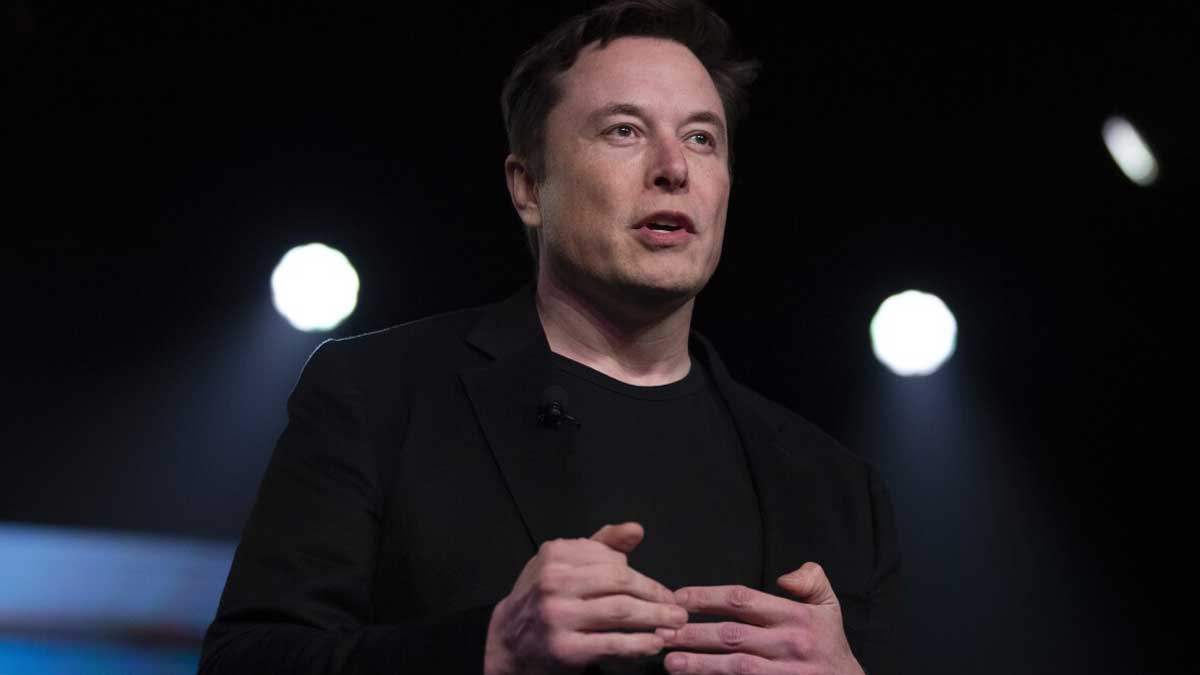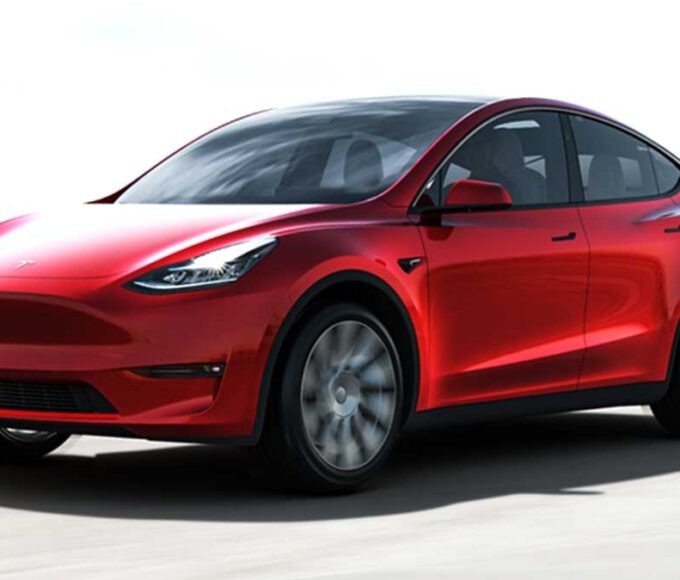- Home
- Billionaires
- Investing Newsletters
- 193CC 1000
- Article Layout 2
- Article Layout 3
- Article Layout 4
- Article Layout 5
- Article Layout 6
- Article Layout 7
- Article Layout 8
- Article Layout 9
- Article Layout 10
- Article Layout 11
- Article Layout 12
- Article Layout 13
- Article Layout 14
- Article Sidebar
- Post Format
- pages
- Archive Layouts
- Post Gallery
- Post Video Background
- Post Review
- Sponsored Post
- Leadership
- Business
- Money
- Small Business
- Innovation
- Shop
Recent Posts
Tesla Stock Slides Amid AI Investment Concerns

Tesla’s stock endured a significant drop in premarket trading on Wednesday, plummeting by over 8% to $226.57. This sharp decline followed the company’s announcement of second-quarter earnings, which fell short of expectations and highlighted ongoing struggles within the business. The disappointing earnings report comes amid growing investor frustration with CEO Elon Musk’s focus on long-term investments in artificial intelligence (AI) and other futuristic projects, while the core automotive segment faces mounting challenges. The stock’s decline extends a trend observed since Tuesday, when it closed down 2%, despite the company’s sales figures surpassing forecasts. The issue lies in Tesla’s profit margins, which have reached one of their lowest points in recent years due to a drastic 45% slump in profits for the second quarter. This drop is attributed to the company’s decision to cut prices to boost demand, particularly in a highly competitive market and in China, where sales have been particularly sluggish.
In addition to declining profits, Tesla faces increasing operating costs as a result of its ongoing restructuring efforts. These efforts have included significant layoffs, which have led to legal disputes and further increased operational expenses. The company’s heavy investment in AI, chips, and robotics has raised investor concerns about the financial strain these projects could impose in the short term. Many investors are anxious about the long-term viability of these investments, which are expected to generate returns only in the distant future, if at all. This apprehension is exacerbated by the substantial investments Tesla is making in these advanced technologies, which are seen as speculative and potentially financially burdensome.
Elon Musk has repeatedly asserted that Tesla’s future lies in AI, a sentiment that has driven significant investment into this sector. Known for making bold, often overly optimistic predictions, Musk’s previous forecasts have sometimes proved inaccurate. Despite the substantial funding allocated to AI technology and related hardware, such as chips and robotics, there is growing skepticism about the realism of Musk’s ambitious goals. The stock’s dramatic increase, fueled by speculative excitement about AI, has led some to question whether it has become overvalued, potentially creating a market bubble. This concern is particularly pronounced with Tesla, which some investors now view more as an AI company that happens to manufacture cars rather than the other way around.
Swiss bank UBS has been especially critical of Tesla’s stock valuation. In July, UBS downgraded Tesla from a neutral to a sell rating, citing concerns that the stock had surged “too much, too soon.” On Wednesday, UBS analysts reinforced their negative outlook, suggesting that Tesla’s current stock price reflects not only its automotive and energy businesses but also its AI and autonomy projects, including the robotaxi and Optimus robot initiatives. UBS analysts highlighted that the stock’s high valuation assigns significant value to these projects, which are difficult to quantify and evaluate. They warned of a potential 20% downside risk to Tesla’s stock if investor optimism about AI diminishes.
Musk has emphasized that autonomy is crucial to Tesla’s future success. However, UBS analysts point out that the timeline and likelihood of success for Tesla’s advanced autonomous projects, such as the robotaxi, remain uncertain. These projects have faced numerous delays and are burdened with regulatory and technological challenges that must be overcome before they can become commercially viable. The uncertainty surrounding these projects adds to investor concerns about the company’s future performance.
Tesla is set to showcase robotaxi prototypes on October 10th, which are expected to be fully autonomous vehicles requiring no human oversight. This development is viewed as a major step toward achieving Tesla’s goal of full autonomy. Analysts from Wedbush believe that this announcement will mark the beginning of a significant phase in Tesla’s AI journey, with the potential for the technology to be worth $1 trillion in the coming years.
In April, Musk announced that Tesla would invest approximately $10 billion in training AI systems in 2024. He emphasized that any company not making such substantial and efficient investments in AI would be unable to compete effectively in the future. This commitment underscores Tesla’s focus on AI but also raises questions about the company’s short-term financial health.
Elon Musk remains the world’s richest individual, with an estimated net worth of $248.7 billion. His wealth is closely tied to Tesla, as well as his other ventures, including SpaceX, The Boring Co., and AI startup xAI. Musk also owns the social media platform X, which he acquired in 2022. As Tesla continues to navigate these financial and operational challenges, market reactions to Musk’s AI ambitions and the company’s overall financial health will likely remain pivotal in influencing stock performance and investor sentiment.
Recent Posts
Categories
- 193cc Digital Assets2
- 5G1
- Aerospace & Defense46
- AI37
- Arts3
- Banking & Insurance11
- Big Data3
- Billionaires449
- Boats & Planes1
- Business328
- Careers13
- Cars & Bikes76
- CEO Network1
- CFO Network17
- CHRO Network1
- CIO Network1
- Cloud10
- CMO Network18
- Commercial Real Estate7
- Consultant1
- Consumer Tech180
- CxO1
- Cybersecurity68
- Dining1
- Diversity, Equity & Inclusion4
- Education7
- Energy8
- Enterprise Tech29
- Events11
- Fintech1
- Food & Drink2
- Franchises1
- Freelance1
- Future Of Work2
- Games141
- GIG1
- Healthcare78
- Hollywood & Entertainment186
- Houses1
- Innovation42
- Investing2
- Investing Newsletters4
- Leadership65
- Lifestyle11
- Manufacturing1
- Markets20
- Media193
- Mobile phone1
- Money13
- Personal Finance2
- Policy567
- Real Estate1
- Research6
- Retail1
- Retirement1
- Small Business1
- SportsMoney33
- Style & Beauty1
- Success Income1
- Taxes2
- Travel10
- Uncategorized8
- Vices1
- Watches & Jewelry2
- world's billionaires418
Related Articles
Tesla Recalls 700,000 Vehicles Over Tire Pressure Issue
Tesla has announced its latest recall of nearly 700,000 vehicles in the...
By 193cc Agency CouncilDecember 20, 2024MicroStrategy Stock Rallies on Nasdaq 100 News
Shares of MicroStrategy surged on Monday following the announcement that the company...
By 193cc Agency CouncilDecember 16, 2024Stanley Recalls Millions of Mugs After Burn Injuries
In a significant recall, Stanley, the well-known brand behind popular stainless steel...
By 193cc Agency CouncilDecember 12, 2024Adobe Shares Drop 12% After Lowering Revenue Outlook
Shares of Adobe experienced a significant drop of over 12% on Thursday,...
By 193cc Agency CouncilDecember 12, 2024















Leave a comment